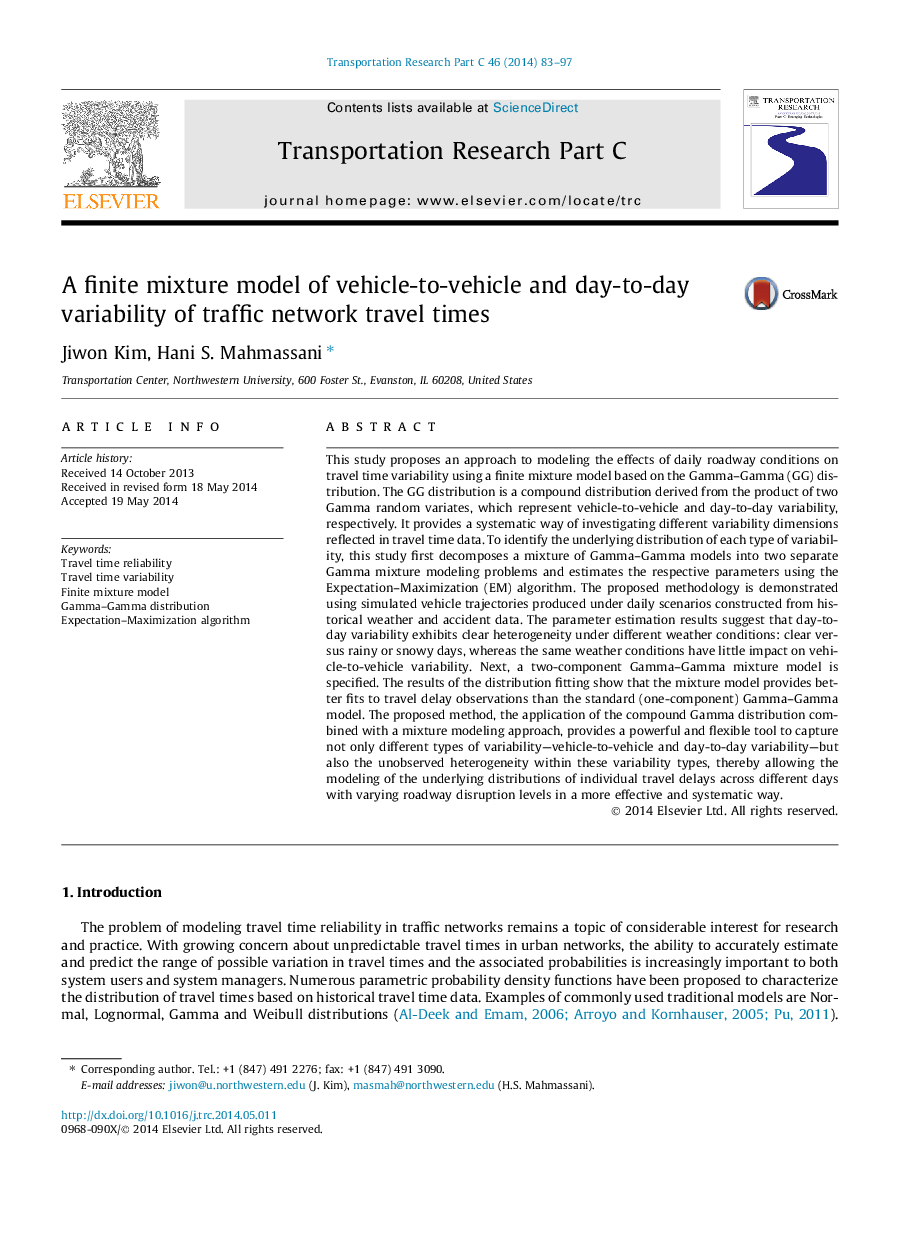| Article ID | Journal | Published Year | Pages | File Type |
|---|---|---|---|---|
| 6937084 | Transportation Research Part C: Emerging Technologies | 2014 | 15 Pages |
Abstract
This study proposes an approach to modeling the effects of daily roadway conditions on travel time variability using a finite mixture model based on the Gamma-Gamma (GG) distribution. The GG distribution is a compound distribution derived from the product of two Gamma random variates, which represent vehicle-to-vehicle and day-to-day variability, respectively. It provides a systematic way of investigating different variability dimensions reflected in travel time data. To identify the underlying distribution of each type of variability, this study first decomposes a mixture of Gamma-Gamma models into two separate Gamma mixture modeling problems and estimates the respective parameters using the Expectation-Maximization (EM) algorithm. The proposed methodology is demonstrated using simulated vehicle trajectories produced under daily scenarios constructed from historical weather and accident data. The parameter estimation results suggest that day-to-day variability exhibits clear heterogeneity under different weather conditions: clear versus rainy or snowy days, whereas the same weather conditions have little impact on vehicle-to-vehicle variability. Next, a two-component Gamma-Gamma mixture model is specified. The results of the distribution fitting show that the mixture model provides better fits to travel delay observations than the standard (one-component) Gamma-Gamma model. The proposed method, the application of the compound Gamma distribution combined with a mixture modeling approach, provides a powerful and flexible tool to capture not only different types of variability-vehicle-to-vehicle and day-to-day variability-but also the unobserved heterogeneity within these variability types, thereby allowing the modeling of the underlying distributions of individual travel delays across different days with varying roadway disruption levels in a more effective and systematic way.
Keywords
Related Topics
Physical Sciences and Engineering
Computer Science
Computer Science Applications
Authors
Jiwon Kim, Hani S. Mahmassani,
